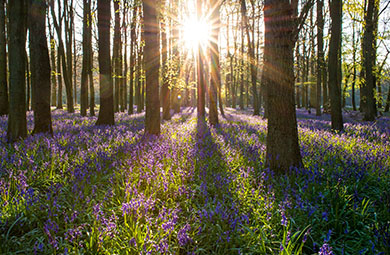Select tab
About
This Lantra-accredited Customised Award is exclusively developed and delivered by a Lantra-approved Training Provider, who meets our quality standards. The course is specifically tailored to meet learners’ needs. For further details about the course content and delivery locations, please contact the Training Provider using the details provided below.
The minimum age to undertake this course is 16.
This course covers basic history of British woodland, woodland structure, management challenges and techniques and how they can affect flora and fauna, woodland features, management principles for conservation.
The finer details
The course consists of:
Outline of the history of British woodland
Woodland benefits
4 tier woodland layers
Effects of neglect
Challenges of small woodland
InterventionPriorities
ASNW
Traditional methods of management
No’s of Invertebrates associated with trees & shrubs
Changes in use by birds as trees grow
Thinning, regeneration & planting
Glades, rides, open spaces & dead/dying trees
Management principles for nature conservation
Who should attend?
Conservation Groups and Volunteers; Woodland Managers and Owners; Farmers; Estate Managers; Wild Life Trusts; National Trust.What will be covered?
- The basic knowledge to manage woodland where the primary aim is conservation for nature
- The knowledge of the basic history of British Woodland
- Knowledge of the four tier woodland layers & their importance to bio-diversity
- Knowledge of traditional methods of woodland management & how these methods where appropriate can enhance woodland for conservation
- Appreciate the priorities for woodland conservation
- Knowledge of Ancient Semi Natural Woodland Indicators
- Appreciate whether to intervene or not to intervene for conservation
- When thinning, regeneration and planting may be appropriate for conservation
- Understand the contribution to conservation to be made by glades, rides, open spaces & dead/dying trees
- The management principles for nature conservation.
Other areas of interest
The Rural Manager - Communications
Woodland Management For Conservation
Managing and Developing Interpersonal Skills and Customer Service Focus Within the Work Environment
The Rural Manager's Whistle Stop Tour of Management Practices
Leading Guided Walks/Involving the Community in the Environment
The Rural Manager - Time Management
The Rural Manager - Motivation and Team Work
Social Media for Marketing and Communications
Introduction to Agricultural Based Business Planning
Developing Management Skills That Drive Teams Forward
Hand Held and Back Pack Blowers (to Include Vacuum Blowers)
Instructional Techniques for Practical Skills Trainers
Electric Chainsaw Use and Maintenance in a Manufacturing Environment
Planning a Diversification or New Enterprise on the Farm
An Introduction to Worm Control and Faecal Egg Counting for Sheep Producers
A Farmer's Guide to Compiling Business Plans
Effective Meeting Skills – Minute Taking
Effective Meeting Skills – Participating and Chairing
Instructional Techniques for the Practical Skills Trainer - Assessed
Business Planning and Development - Know How To Form Your Own Written Plan
Marketing Your Business - Create an Action Plan Offline & Online
Search for providers near you
If there are no suitable courses listed above, please fill in the details below and this will display a list of other course providers who also deliver this course.



